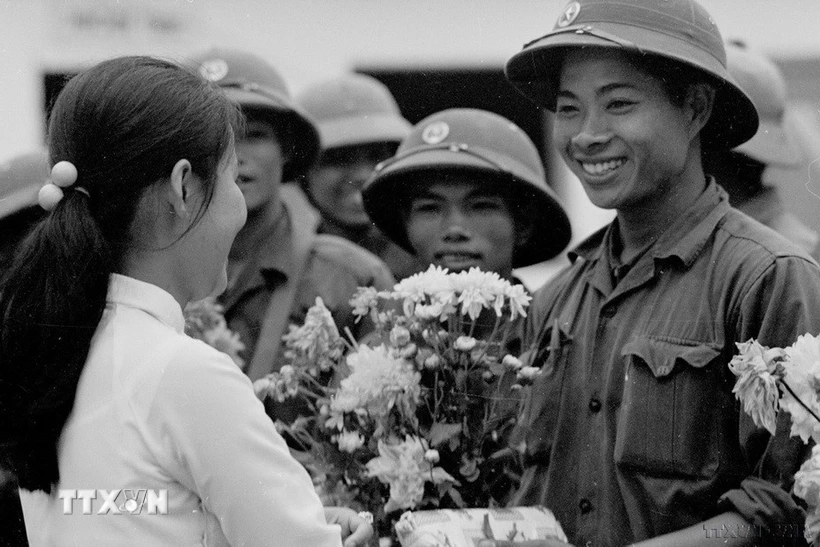
Female students of Bo De School (Da Nang) present flowers to welcome soldiers who liberated the city during the Hue-Da Nang campaign that took place from March 21-29, 1975. (Photo: Quang Thanh/VNA)
Only Vietnam changed its borders in one of the hot fronts of the Cold War, only Vietnam unified the country in 1975.
This is the affirmation of Professor, Doctor of Historical Sciences Vladimir Kolotov, Director of the Ho Chi Minh Institute, Saint Petersburg State University, when answering an interview with a reporter of the Vietnam News Agency in the Russian Federation on the occasion of the 50th anniversary of the Liberation of the South and national reunification of the Vietnamese people (April 30, 1975 - April 30, 2025).
According to Professor Vladimir Kolotov, that historic victory was of epochal significance when the young Democratic Republic of Vietnam led the progressive forces of humanity in the fight against American imperialism and neo-colonialism, achieving a resounding victory on April 30, 1975.
Over the past 50 years, overcoming the difficulties and consequences of decades of division and then unification of the two regions into a unified entity, Vietnam has entered a period of Renovation and regional integration. Vietnam has contributed to reducing threats to security in Southeast Asia and is determined to develop the economy and improve people's living standards.
Over the past decades, a unified Vietnam has significantly increased its international prestige, becoming a highly regarded member of multilateral institutions such as the United Nations and the Association of Southeast Asian Nations (ASEAN). These are undeniable achievements of Vietnam in the past 50 years.
Professor Vladimir Kolotov emphasized that the great role in that victory belonged first of all to the national leader, the hero of the national liberation movement - Ho Chi Minh, who had great contributions to the cause of national liberation and unification.
The strategies and tactics developed by President Ho Chi Minh helped Vietnam achieve great goals with very modest resources, despite countless difficulties. Other countries in the region had more resources but could not achieve similar results.
Until now, many countries in the world that are suffering from the influence of neo-colonialism still try to carefully study Vietnam's successful experience in order to try to apply it to their own struggles.
Precious international support is also a strength that Vietnam has to gain final victory.
The Professor himself clearly remembers the movement of solidarity with Vietnam that developed widely in the Soviet Union at that time and to this day, Vietnam always affirms that the support of the Soviet Union is a strong factor that significantly helps strengthen Vietnam's position on the battlefield as well as in the international arena.
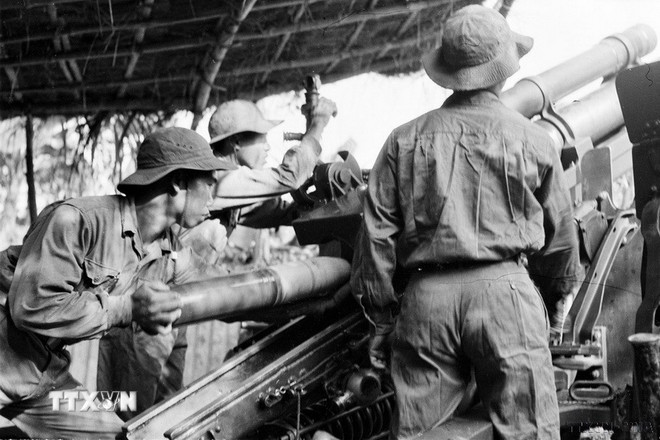
Soldiers of the 2nd Artillery Battalion of the Quang Ngai Liberation Army used the enemy's 105mm artillery to attack the enemy, contributing to the complete liberation of Quang Ngai town and Quang Ngai province. (Photo: Duong Duc Quang/VNA)
Having spent many years researching the history of the Vietnam War, Professor Vladimir Kolotov shared that the “war” “gave” him a precious friend, whom the whole of Vietnam knows as Nguyen Van Lap.
The two met by chance when attending the 40th anniversary of Vietnam's reunification day and became friends.
Nguyen Van Lap was Greek, a former soldier of the Foreign Legion of the French Army who was tricked into going to Indochina to disarm the Japanese army and forced to fight against the Vietnamese national liberation movement.
When he understood the righteous nature of the Vietnamese people, he took up arms and stood with the Viet Minh, fighting against the colonialists.
The memoirs of the old anti-war veteran, as well as those of Vietnamese scholars and politicians who had experienced the war, were very useful for the research and helped the Russian researcher deeply understand that it was the memories of living witnesses that made an invaluable contribution to preventing new wars, fighting against historical revisionism and spreading the truth to everyone about what really happened.
Today, Vietnam enters a new era as a sovereign nation with high international prestige. However, in today's modern world, in addition to military and force pressure, there is also pressure on finance, economics, science and technology, space, cyberspace...
According to the Professor, underestimating new threats will lead to negative consequences. Lessons from past wars also show that to effectively prevent a threat, one must first correctly assess the extent and nature of that threat.
Only capacity, qualified personnel and determination can reduce the negative impact of threats to the state and society, Professor Kolotov concluded./.
Source: https://www.vietnamplus.vn/50-nam-thong-nhat-dat-nuoc-hinh-mau-duy-nhat-duoi-goc-nhin-chuyen-gia-post1033093.vnp



![[Photo] Prime Minister Pham Minh Chinh receives Swedish Minister of International Development Cooperation and Foreign Trade](https://vphoto.vietnam.vn/thumb/1200x675/vietnam/resource/IMAGE/2025/5/12/ae50d0bb57584fd1bbe1cd77d9ad6d97)






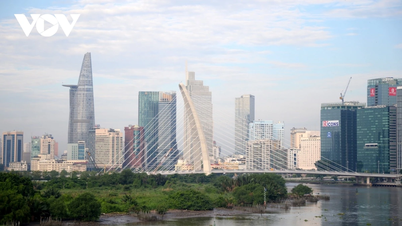



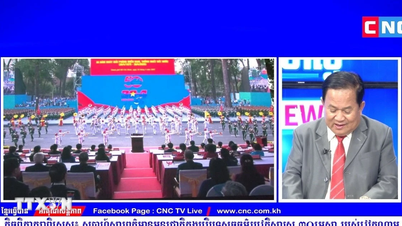
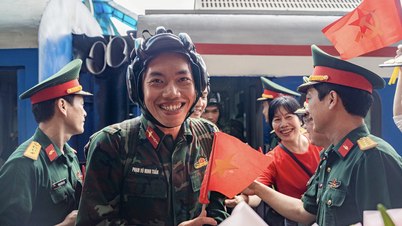

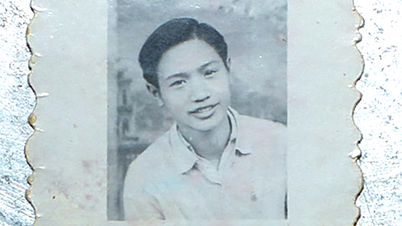
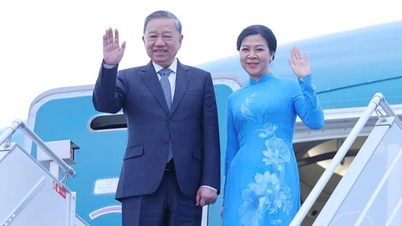

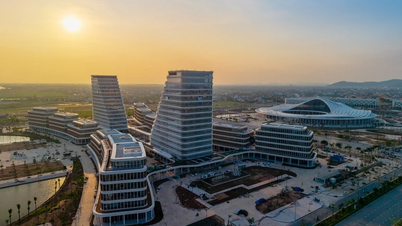


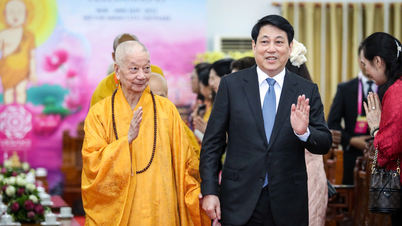




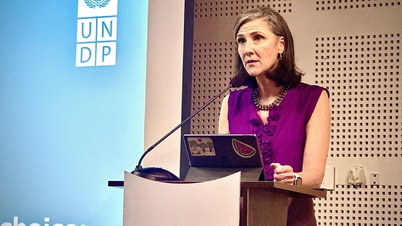

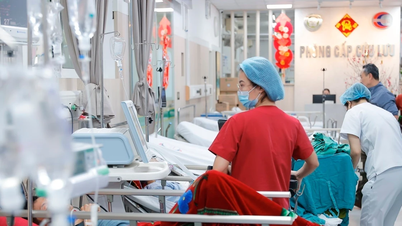

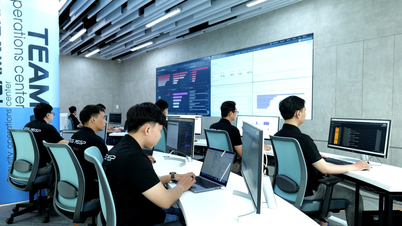
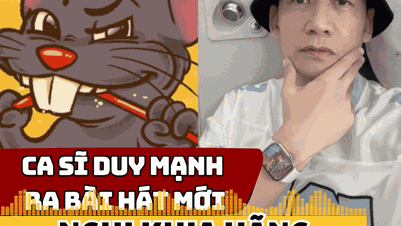
![[Photo] Prime Minister Pham Minh Chinh works with the Standing Committee of Thai Binh Provincial Party Committee](https://vphoto.vietnam.vn/thumb/1200x675/vietnam/resource/IMAGE/2025/5/12/f514ab990c544e05a446f77bba59c7d1)
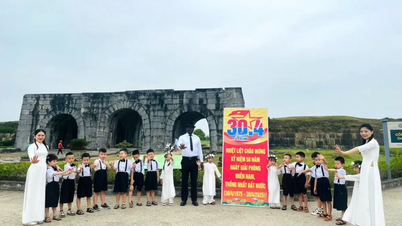

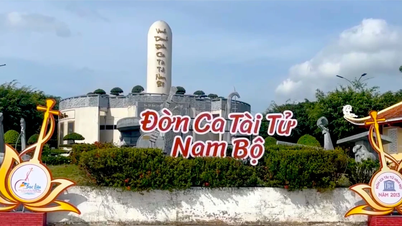












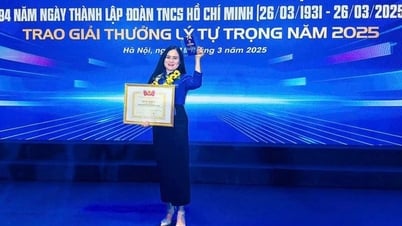







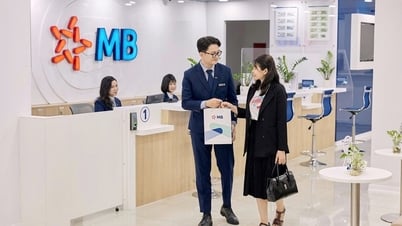










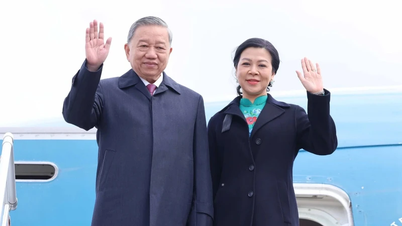

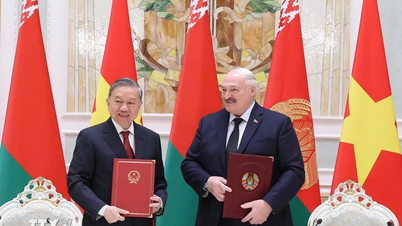
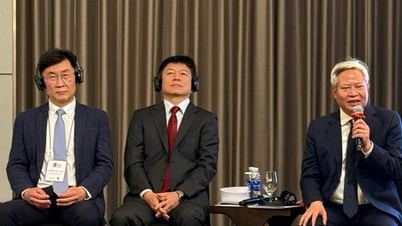



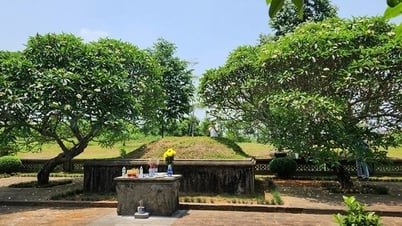
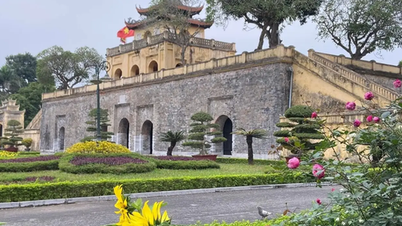
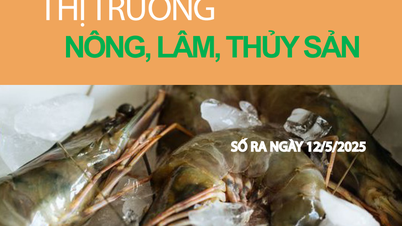

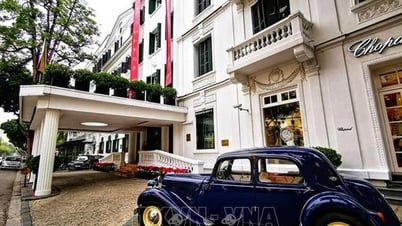


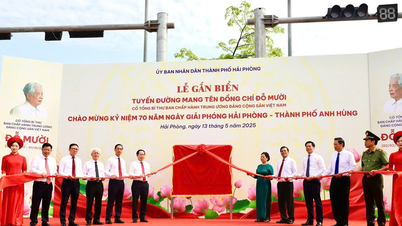
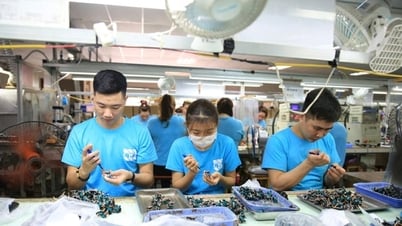

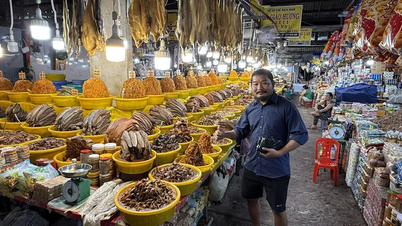

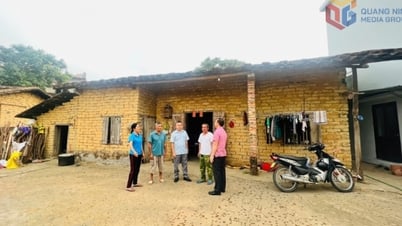














Comment (0)